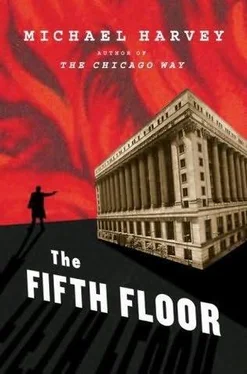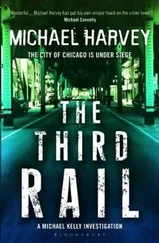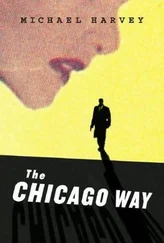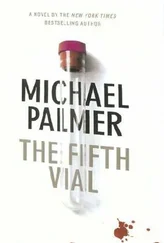Michael Harvey - The Fifth Floor
Здесь есть возможность читать онлайн «Michael Harvey - The Fifth Floor» весь текст электронной книги совершенно бесплатно (целиком полную версию без сокращений). В некоторых случаях можно слушать аудио, скачать через торрент в формате fb2 и присутствует краткое содержание. Жанр: Полицейский детектив, на английском языке. Описание произведения, (предисловие) а так же отзывы посетителей доступны на портале библиотеки ЛибКат.
- Название:The Fifth Floor
- Автор:
- Жанр:
- Год:неизвестен
- ISBN:нет данных
- Рейтинг книги:3 / 5. Голосов: 1
-
Избранное:Добавить в избранное
- Отзывы:
-
Ваша оценка:
- 60
- 1
- 2
- 3
- 4
- 5
The Fifth Floor: краткое содержание, описание и аннотация
Предлагаем к чтению аннотацию, описание, краткое содержание или предисловие (зависит от того, что написал сам автор книги «The Fifth Floor»). Если вы не нашли необходимую информацию о книге — напишите в комментариях, мы постараемся отыскать её.
The Fifth Floor — читать онлайн бесплатно полную книгу (весь текст) целиком
Ниже представлен текст книги, разбитый по страницам. Система сохранения места последней прочитанной страницы, позволяет с удобством читать онлайн бесплатно книгу «The Fifth Floor», без необходимости каждый раз заново искать на чём Вы остановились. Поставьте закладку, и сможете в любой момент перейти на страницу, на которой закончили чтение.
Интервал:
Закладка:
“Hey.”
Rachel Swenson’s eyes widened a bit. She stopped and turned down the volume on an iPod Shuffle clipped to her upper arm.
“Michael Kelly.”
Her cheeks were red with the cold. Underneath her hat, she looked like she might be a law student at Northwestern, getting in her miles before an early morning class in contracts. In reality, Rachel Swenson was a sitting judge for the Northern District of Illinois and a woman I had been meaning to call for at least a year. She leaned close and gave me a hug. I got my arms up, almost too late, and then hung on too long.
“How are you?” she said.
“Pretty good. You run out here often?”
“Not as much as I should. How about you?”
“I try. Gets harder when it’s cold.”
“Tell me about it.”
On cue, a volley of wind punched in off the lake. Rachel shivered and stamped her feet. I shook out my arms and tried to think of something to say. We stepped into a pause that seemed to last an hour and a half. Rachel got us out the other side with a thud.
“I saw you the other day.”
“Where?”
“I was at Graceland,” she said. “Thursday morning.”
Graceland was a cemetery in Chicago. Nicole Andrews was buried there. She had been a friend to both of us. Now she was dead. Murdered, actually. By a third friend.
“I sat in my car and waited for you to leave,” Rachel said.
“You should have come over.” A second burst of wind pulled the words from my mouth and scattered them across the lakefront. Rachel, however, caught my meaning.
“Seemed like you wanted to be alone,” she said.
I shrugged.
“I waited there almost an hour, Michael. Then I left.”
“Sorry,” I said.
“Don’t be sorry. How often do you go to Nicole’s grave?”
“Not that much.”
“How often?”
“Not much. Maybe once a month. I just stay awhile. Sometimes it’s a good place to think.”
Rachel was looking at me closely now. I didn’t like it.
“You okay, Michael?”
“I’m okay.”
And I was. At least, I thought so. Nicole was my best friend. Always would be. Death was just another thing to work around.
“Why don’t we get together sometime,” Rachel said.
“I was going to call and suggest the same thing.”
The judge cocked her hip and tilted her head. “You were going to call?”
“Yes.”
“And ask me out?”
“Exactly.”
“Michael, it’s been at least a year since I’ve talked to you.”
“I know.”
She sighed. “You got my number?”
“I got it. Told you I was going to call.”
Rachel turned on her music and began to jog in place. “This is where I turn around. Call me. Drinks, dinner. Whatever. Might do us both some good.”
I watched her go. It was cold, but I watched her, anyway. Then I headed home. Ripped off the last mile and a half, feeling strong, promising myself I’d call this woman, wondering how in the hell I was going to find out her phone number.
CHAPTER 6
H alf an hour later, I was showered, dressed, and headed down to Intelligentsia. They’d been open fewer than ten minutes, but the queue was already five people long. I got a large coffee and opened up the Trib. Fred Jacobs’ story played just below the fold. Five column inches with a jump to page four. Probably fewer than a thousand words in all. The career obit for one David Meyers. According to the article, the mayor would hold a press conference today and put the soon-to-be-former exec out of his misery. I imagined the mayor’s niece was already redecorating her new office and turned to the sports page.
By seven a.m., I was back downtown, sitting chilly a half block from City Hall, waiting on Johnny Woods. I had never seen the guy, but Jacobs had given me a description. Even better, Janet Woods had given me a picture. Their wedding shot, actually. Janet wore a lace dress with a long veil, sweet smile, and not the vaguest idea of the mistake standing directly to her left. For his part, Woods looked like a big guy. Maybe six-three, two hundred plus. He was thick too. Thick forehead over a thicker brow. A thick smear of ears, nose, and lips. Thick arms, one stiff by his side, the other circling his bride’s waist, tugging her close, daring anyone to try and take her. The one thing about Johnny Woods that wasn’t thick was the hair on top of his head. That probably pissed him off. I had a feeling Woods could hit when he got pissed and I bet it hurt. In fact, I’d seen his handiwork up close. Of course, lots of guys could hit. Make the heavy bag pop in the gym. That is, until the bag grew arms and hit back. If things played out right, maybe we’d get to see about Johnny.
The mayor’s fixer stepped out of City Hall at a little after nine. Woods wore a Brooks Brothers suit, red tie, and black loafers. He was freshly shaved and probably whistling. I got out of my car, dropped a few quarters into the mayor’s meter, and drifted behind. Johnny strolled down Clark Street, moved to the curb, and lifted his hand. A yellow Checker pulled to a stop and Woods got in. Fortunately, I was in the Loop, amid an armada of hacks, yellow, green, blue, and everything in between. I hailed a Flash cab and told him to follow the Checker. The cabbie thought I was kidding. I told him I was a cop and shoved a couple of twenties under his nose. The cabbie smiled and followed. At a discreet distance, even.
JOHNNY WOODS’ CAB threaded its way north, through Chicago’s Lincoln Park neighborhood, to the corner of Clark and Webster. There, the Checker swung a left and eased to a halt. I got out around the corner and tiptoed behind. My boy found his way down the block, to a small bit of street called Hudson.
It was a nice street. Actually, it was more than nice. It was a street with the quiet, comfortable attitude of money. A grand display of two-flats and single-family homes ran down both sides of Hudson. Turn-of-the-century brick and stone spread out behind black iron fences. Big yards with trees and birdhouses. Covered garages and a BMW or two parked somewhere in the back. Starting price for a shack on this block was two million. In Chicago, folks lined up for the privilege.
Halfway down the street sat 2121 North Hudson. More cottage than house, it was half the size of its neighbors and the only building on the block made entirely of wood. A short sweep of stairs led to a small porch, supported by slender columns carved with an Ionic turn at the top. The double front doors looked to be made of oak and were heavy with beveled glass. To one side of the porch was a pair of windows, long and narrow, set with stained glass, and trimmed in lead. The house itself was covered in scalloped blue siding and accented with white. All in all, 2121 had a look of quiet elegance, with the small touches of craftsmanship you don’t see today-unless, that is, you’re looking at something built a long time ago.
Woods stood in front of the tiny gem and took stock. Then he stepped up the walkway onto the porch and rang the front bell. I stopped a few houses down and slouched. I was good at that. Woods tapped his hand against his side and fidgeted. No answer. He thought for a bit and took a look through the front door. Then he thought again and pushed. The door opened. My boy stepped inside.
I wasn’t sure what to expect from the tail. Maybe dig a little dirt. Maybe find a quiet moment and have a chat with my client’s husband. I wasn’t expecting a walk through Lincoln Park and I wasn’t expecting any breaking and entering. Less than a minute after Woods walked through the door, I got another surprise. Johnny came out of the house and down the stairs, head low. He glanced up. Just once, but that was enough. His face was white. Eyes wide. Body stiff. I’d seen that look before and gently turned away. Woods blew past me and hit the corner at Webster, half running. I followed quickly and got to the end of the block just in time to see him wave down a cab. Woods took a last look around, ducked his head into the back of the taxi, and was gone.
Читать дальшеИнтервал:
Закладка:
Похожие книги на «The Fifth Floor»
Представляем Вашему вниманию похожие книги на «The Fifth Floor» списком для выбора. Мы отобрали схожую по названию и смыслу литературу в надежде предоставить читателям больше вариантов отыскать новые, интересные, ещё непрочитанные произведения.
Обсуждение, отзывы о книге «The Fifth Floor» и просто собственные мнения читателей. Оставьте ваши комментарии, напишите, что Вы думаете о произведении, его смысле или главных героях. Укажите что конкретно понравилось, а что нет, и почему Вы так считаете.












